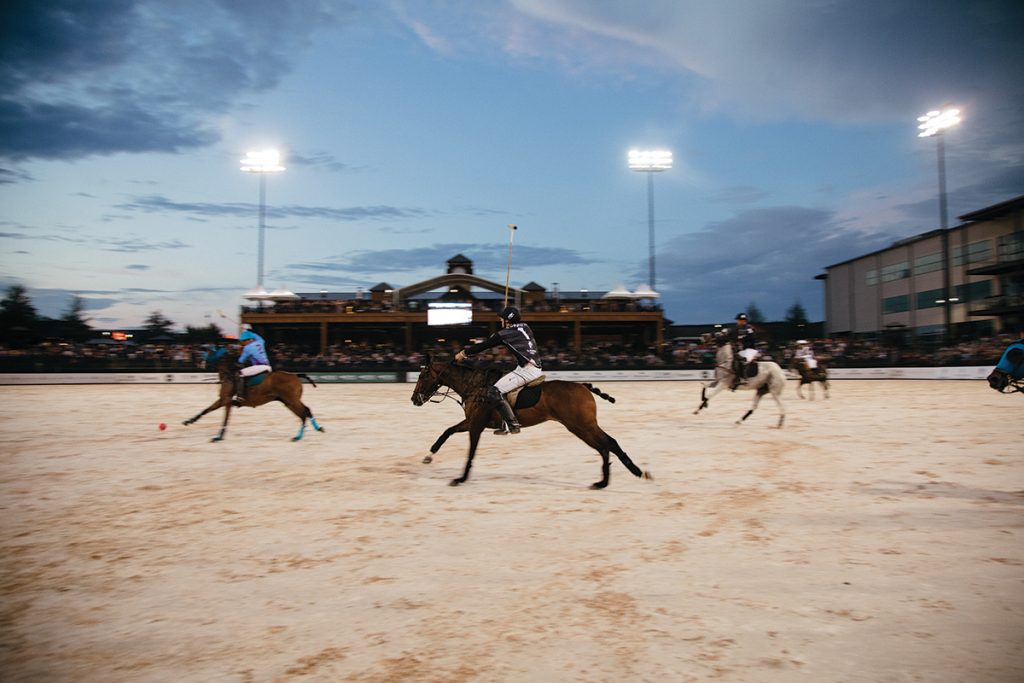
Poetry Festival organizer Lynn Montgomery and poets Cathy Smith Bowers and Kathy Ackerman at the Lanier Library in Tryon.Photo by Tim Robison
Poetry, W.H. Auden once observed, is “the best words in the best order.” This month, finding those words and their proper order will occupy much of downtown Tryon for its first-ever Poetry Festival. Organized by the town’s historic Lanier Library, it has expanded its annual Sidney Lanier Poetry Competition into a day-long series of workshops and readings occupying three different venues. In addition to the library itself, events will also be taking place next door at the Tryon Fine Arts Center, across the street at the Melrose Inn, and down the block at Tryon’s recently restored train depot.
“The library’s directors were looking for an event that could celebrate the literary heritage of our community,” says festival organizer Lynn Montgomery. “A poetry festival seemed like a perfect fit with the poetry competition the library’s done for the past five years. The library’s such a treasure at 124 years old, and I would encourage people to come to the workshops or come to hear poetry read aloud by the author. That’s so special.”
Tryon’s distinguished literary heritage most famously includes F. Scott Fitzgerald, who often stayed at the old Oak Hall Hotel during frequent visits to the mountains and is said to have written parts of Tender Is The Night there. The southern poet Sidney Lanier, for whom the library is named, spent his last years in a brick and wood-frame house just west of town that still stands. The library, whose first books were Lanier’s donated by his widow, has occupied the same site overlooking downtown since 1905 and is one of the country’s few remaining private membership libraries, receiving no government funds and relying solely on member dues, gifts and endowments for support.
The poetry competition named in Lanier’s honor will be judged this year by North Carolina’s Poet Laureate Joseph Bathanti, the Writer In Residence at Appalachian State. The fact that North Carolina even has a Poet Laureate is a sign of poetry’s ancient and abiding roots in the human psyche. “Poetry is a dialogue between the conscious and the unconscious,” says Cathy Smith Bowers, who herself served two years as the state’s Laureate, from 2010 to 2012, and who is one of six poets leading workshops during the festival. “Poetry, whether we’re reading or writing it, breaks us open. I think poetry festivals can disabuse people of misconceptions about what a poem is, and what a poet is.”
The most common misconception about poetry is that it must have an obscurity of meaning, although the poetry of Billy Collins and Mary Oliver, to name two of our more widely-read contemporary poets, are beloved for the accessibility of their verse, evident in recently published new collections (Collins’ Aimless Love and Oliver’s Dog Songs) that have been favorably reviewed in the mainstream press. “They may be accessible, but they’re also both brilliant and learned,” Cathy says of the two poets. “Anyone who studies their poems closely will see that there are complexities in their poems that go far beneath the surface. The best poems don’t give themselves up on the first reading, and never give themselves up completely.”
Cathy herself has published five collections of her poetry, most recently the delightfully titled Like Shining From Shook Foil. Joining her festival workshop on techniques to transform emotion and experience into poetry will be other sessions focusing on the process of writing poetry, the nuts and bolts of publishing poetry, and the use of musical rhythms to help shape a poem’s form and meter.
A highlight of the festival will be a luncheon with Mark Doty, a National Book Award winner for his collection of poems Fire To Fire. Doty is currently a Distinguished Professor at Rutgers and has taught at Princeton and at the Iowa Writers Workshop. He’ll speak during the luncheon about the importance of poetry in the nation’s cultural life and will read from some of his work.
The Poetry Festival seems an appropriate next step for the central role the library has played in the Foothills’ literary life for over a century. “I think the poetry reading public is engaged and growing,” Cathy says. “In my experience as a poet, teacher, writer, reader and workshop leader, I’ve witnessed the hunger human beings have to articulate emotion, thought and story. It’s a dialogue that can change the mind, heart and soul.”



